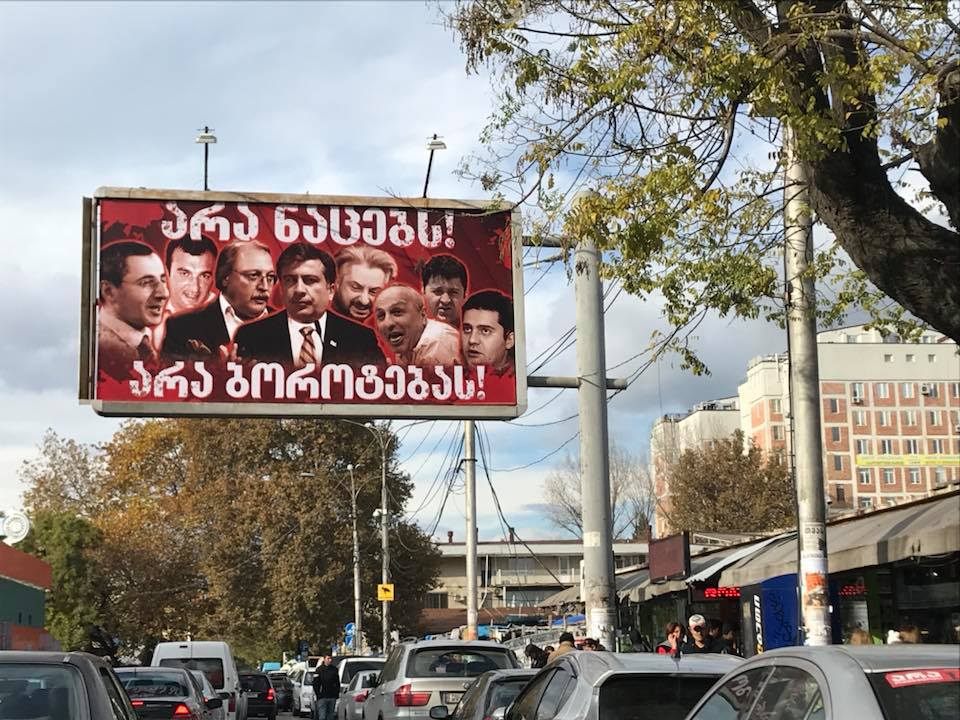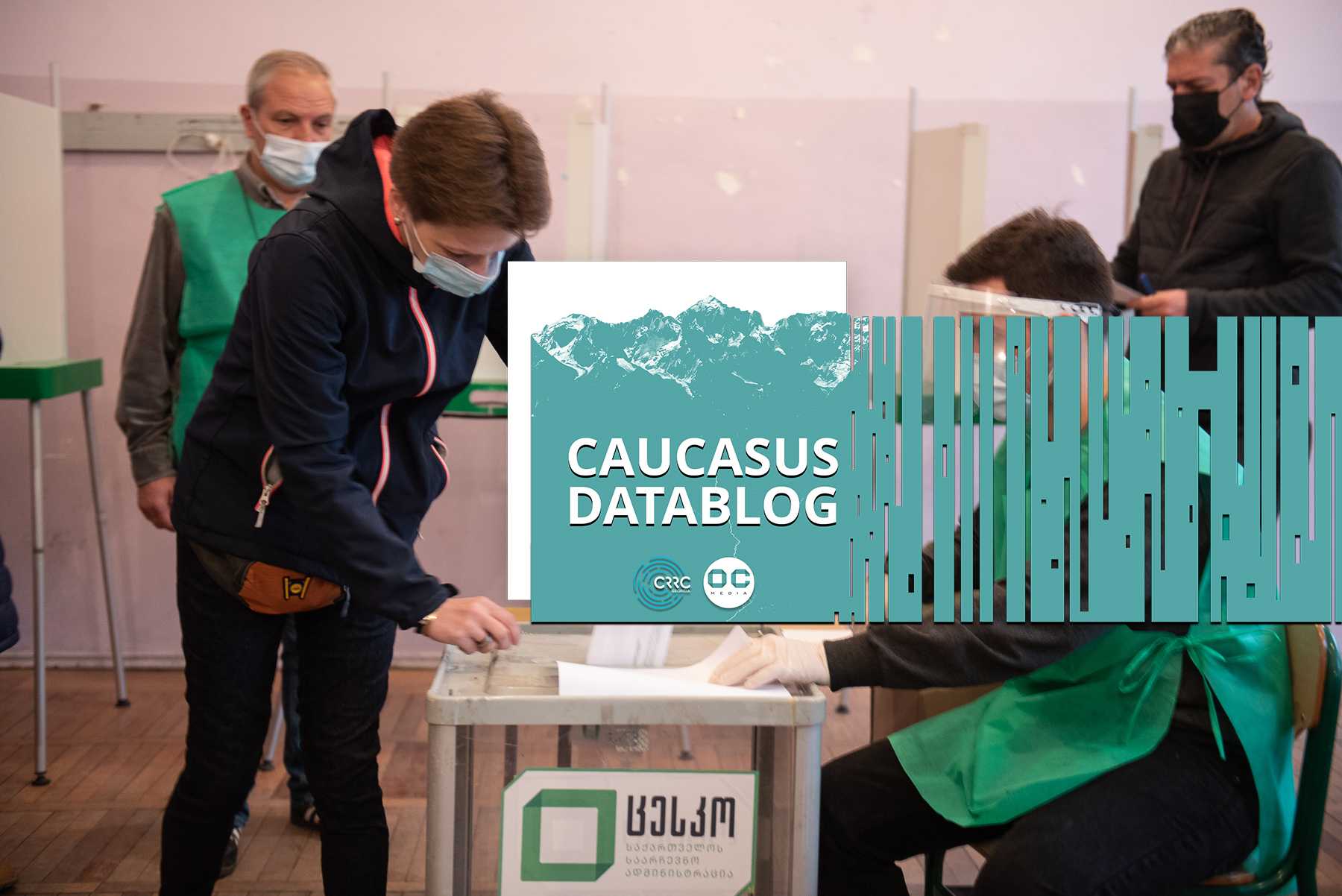
Negative campaign ads placed in Tbilisi and several other Georgian cities have caused a backlash with critics denouncing them for inciting violence, promoting divisiveness to the detriment of the pro-vaccination campaign, and potentially violating election laws.
Banners featuring the message ‘No to natsebi! No to evil! No to betrayal!’ with faces of government critics and opposition leaders framed with bloodstains were put up on 17 September, 15 days before the municipal elections slated for 2 October.
‘Natsebi’ is a pejorative term for members of the former ruling United National Movement Party (UNM).
At least three of the attack ads in Tbilisi have replaced billboards promoting mass vaccination.
According to Georgian medical authorities, in recent weeks, the number of registrations for anti-COVID-19 jabs have dropped precipitously. One-third of Georgia’s population is fully vaccinated.
[Read more on OC Media: ‘Get your vaccines!’: Vaccination numbers drop in Georgia or Georgia’s COVID-19 cases exploded due to the 2020 parliamentary elections]
‘Violent’ content
Along with former President Mikheil Saakashvili and several Georgian opposition leaders, the ads feature TV Pirveli journalist Nodar Meladze and Director of the Mtavari channel Nika Gvaramia, who previously served as a government official under the UNM government.
Also featured is former Georgian Dream member and ex-Prime Minister Giorgi Gakharia who is currently challenging Georgian Dream member and incumbent Kakha Kaladze for the office of mayor in Tbilisi.
[Read more on OC Media: Who’s who in the Tbilisi Mayoral election]
Leaders of Georgian Dream denied having anything to do with banners while their Chairman Irakli Kobakhidze, who has recently dismissed Giorgi Gakharia as a ‘cokehead’, endorsed ‘all’ messages the ads conveyed.
The International Society for Fair Elections And Democracy (ISFED), a Georgia-based election watchdog, has deemed the banners to be in violation of Article 45.3 of the Georgian Election Code banning ‘propaganda for violence’.
In late July, Tbilisi City hall was quick to scrap similar ‘bloody’ posters pasted around the capital.
The posters also read ‘No to natsebi! No to evil!’ and included journalists, as well as civil activists, with a rainbow in the background.
Anonymous ads
On 20 September, the Central Election Administration started to look into the banners.
The investigation came on the heels of ISFED lodging a formal complaint over the banners, both for their content and for lacking any indication of who produced and ordered them — mandatory details for the printed campaign materials.
Elene Khoshtaria, an opposition candidate who aspires to lead the Tbilisi City Council, and Kutaisi mayoral candidate Khatia Dekanoidze also said they had lodged complaints against the banners.
Following the torrent of criticism, which included the National Center for Disease Control (NCDC), Alma, the company that rented out the billboards condemned the ‘divisive’ messages of the ads. They also disputed that they had a social responsibility to save the space for anti-COVID-19 information banners.
In recent years, Alma has refused requests to put up billboards funded by Shame, a Georgian liberal opposition group, as well as Equality Movement, a local queer-rights organisation. In both cases, they cited the content of the proposed billboards as the reason for the refusal.
According to corruption watchdog group Transparency International — Georgia, Alma is entirely owned by Malta-registered Meridian Malta and in 2019 ‘acquired a 20-year exclusive right to place advertisements on the infrastructure, movable and immovable property owned by Tbilisi Transport Company LLC’.

Opposition groups and government critics accused Georgian Dream of using proxies to place similar negative ads during the 2018 presidential election.
OC Media has reached out to the State Audit Office for comment.
UPDATE 22 September 2021: The State Audit Office of Georgia told OC Media that they ‘have started to investigate this case to check the legality of this spending’.







